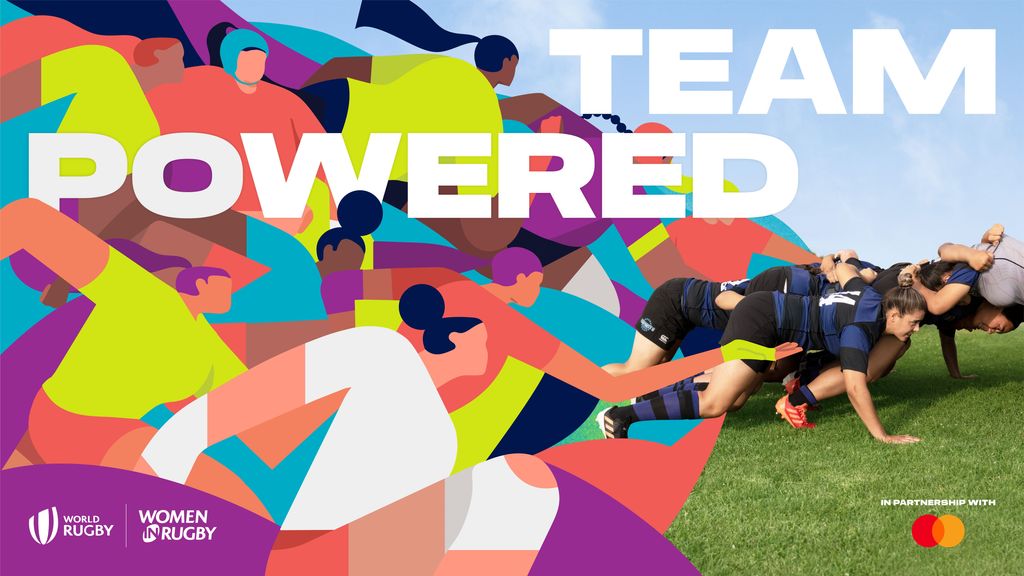When Fans Are Woke, Brands Are the Ones at Risk
June 28, 2021
Ahead of iSportConnect’s Brands eMasterclass on Thursday afternoon, Jay Stuart chats to Michael Robichaud, SVP of Global Sponsorships at Mastercard, who will be speaking at this week’s event.
In our era of increasing consumer sensitivity to social issues, the brands that sponsor sports are probably more vulnerable to the risks of cancel culture than the sports themselves, and they’re more aware of being held accountable, according to Mastercard’s worldwide head of sponsorship.
Michael Robichaud, SVP of Global Sponsorships for the company, which has about three billion active cards around the world, said: “We’re further ahead than sports groups because we’re publicly traded. We have executives and CEOs that have to answer to investors on investor calls, they do press conferences where they get asked questions and you have people that can boycott our products.
“Consumers can vote by saying ‘hold on, we don’t agree with the values of your company, we’re going to vote against you by not buying.’”
“Consumers can vote by saying ‘hold on, we don’t agree with the values of your company, we’re going to vote against you by not buying.’ We’ve heard for years that fans are going to put pressure on sports by holding back their dollars and the sports are going to suffocate and they’re going to be taught a lesson. I don’t think we’ve seen a huge history of that. I think actually the closest we’ve seen is the Super League, which was probably the right time for more fan voices to come in and be heard.”
Mastercard’s long-running partnership with the UEFA Champions League has been a mainstay of the company’s activity in sports, along with agreements with the Rugby World Cup, the R&A (British Open) and US PGA Tour in golf and multiple NFL and MLB teams.
Michael’s role covers entertainment as well as sports, with high-profile partners like the Grammy Awards. But the sports side accounts for about 80% of the focus, “if you include Esports as sports.” Mastercard became the first global sponsor of League of Legends in 2018 in a deal with Riot Games. “For us the agreement was initially targeted on major parts of Asia that we just couldn’t get into on any sort of scale.”
Michael will be taking part in the session ‘The Right Fit: Aligning Brands & Sports‘ at the iSportConnect Brands eMasterclass on July 1, where the subject of shared values will be on the agenda.
He says that all the sports bodies he knows are siding with trying to promote positive change. “No sport is going to say, ‘we don’t like those values, racism’s okay.’ The thing you need to look at is what the priorities are. So UEFA, for example, has made its priority fighting racism and the R&A seeks to promote women’s golf and others may have different priorities.”

For global brands like Mastercard, staying on top of social trends is not just about protecting themselves reactively against the downside of consumer blowback. Mastercard has recognised the need to be proactive and take part in leading the discussion for change.
More generally, Michael makes a crucial point about decision-making in our media-driven society. You have to be willing to break new ground and move beyond the tried and tested. Women’s soccer provides a good example.
In May, Mastercard unveiled a new deal with the 10-team National Women’s Soccer League in the United States as an official partner, with top NWSL player Crystal Dunn of the Portland Thorns joining the all-star roster of Mastercard Global Brand Ambassadors including female stars from other sports such as Naomi Osaka in tennis and golfer Brooke Henderson.
“We’re thinking about things differently and making different decisions for different reasons, with the single ultimate goal of advancing the opportunities for women in sport.”
Michael said: “For a long time people held on to the metric that only 4% of sports highlights on television is women’s sports. Well, if you use that as your basis and say there’s not the TV audience and there’s not the attendance so it must be a bad product, so you shouldn’t invest or sponsor women’s sports, then things don’t change.
“The reality is that it’s a great product, and people absolutely love and support it. But they don’t know about it or they don’t have an opportunity to see it. The TV ratings for the Women’s World Cup in the US were certainly better than anything that men have had. The whole system needs to get behind the product and let it show what it can do. This requires a bit of a different way of thinking and of companies making decisions and that’s what’s happening. We’re thinking about things differently and making different decisions for different reasons, with the single ultimate goal of advancing the opportunities for women in sport.”
Major broadcaster CBS will show NWSL games. Michael likes that games will also be on Twitch. “You would think some people today might say, ‘Oh, you know, the NWSL is on Twitch, it’s only Twitch.’ In fact, people get more excited that they’re on Twitch than anything else because that’s their audience. Technology always plays a role in things changing, and the NWSL has done a great job of embracing that.”
Verizon, AB Inbev and financial group Ally are also backing the NWSL, whose ninth season kicked off last month and will end with the championship final on November 20.
You can hear more from Michael at our Brands eMasterclass on Thursday afternoon (July 1st), between 2-5pm BST. Register interest by clicking this link – https://www.isportconnect.com/event/emasterclass-series-brands//?code=register



